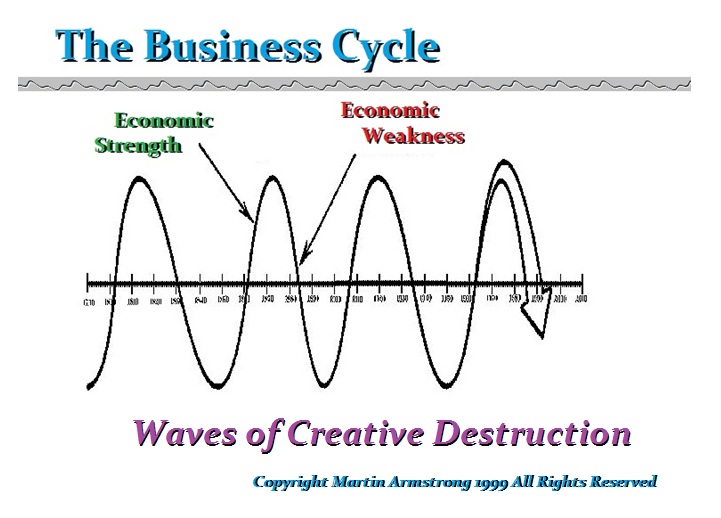Fed & Interest Rates
James Bullard, president of the St. Louis Fed, in a March 3, 2017 interview with the Wall Street Journal, “The recent data aren’t that different from what they were at the time of the January meeting and we didn’t really use the January meeting to set up a March rate hike.” He also offered an important response to what I have been warning about all along. “The one thing that has changed a lot is equity prices.” Historically, the Fed has always responded to stock market rallies despite the fact that recently they have been unwilling to cite asset prices as a reason for a change in interest rates. I have warned that as the stock market rises, they will have NO CHOICE but to raise interest rates for they will be criticized about creating an asset bubble.
Bullard for the first time let the cat out of the bag. Yet this is the number one question I have always gotten from central bankers all the time. They do not like to publicly admit it, but they will always be blamed for asset bubbles. They cannot prevent them any more than they can prevent the crash. Nevertheless, Western Culture presumed, ever since Marx, that government plays a role and can be master of the economy. Paul Volcker in his Rediscovery of the Business Cycle said the truth before he became Fed Chairman August 6th, 1979 until August 11th, 1987 just a month before the Crash of 1987. Volcker himself said that Marxist-Keynesian Economics has failed:
“The Rediscovery of the Business Cycle – is a sign of the times. Not much more than a decade ago, in what now seems a more innocent age, the ‘New Economics’ had become orthodoxy. Its basic tenet, repeated in similar words in speech after speech, in article after article, was described by one of its leaders as ‘the conviction that business cycles were not inevitable, that government policy could and should keep the economy close to a path of steady real growth at a constant target rate of unemployment.’ …
But it was not until the events of 1974 and 1975, when a recession sprung on an unsuspecting world with an intensity unmatched in the post-World War II period, that the lessons of the ‘New Economics’ were seriously challenged.”
No matter what they say, the Fed will raise rates when assets rise. They will interpret that as speculation which will lead to inflation BECAUSE that is how Congress will see it as will mainstream media. Consequently, they will have no choice but to raise rates to fight an asset bubble.
Even Market Watch keeps reporting the overall bearishness of the majority of analysts. They wrote base upon the Wall Street soothsayer John Hussman: “This is the most dangerous and overvalued stock market on record — worse than 2007, worse than 2000, even worse than 1929.” Ironically, the more the press keeps touting what has become a perpetual bearishness, the Fed is also afraid to raise rates for they do not want to be blamed for a crash.
This is why the Fed keeps telegraphing they will raise rates to see if the market responds. That provides them deniability if a market declines before they take any action.


